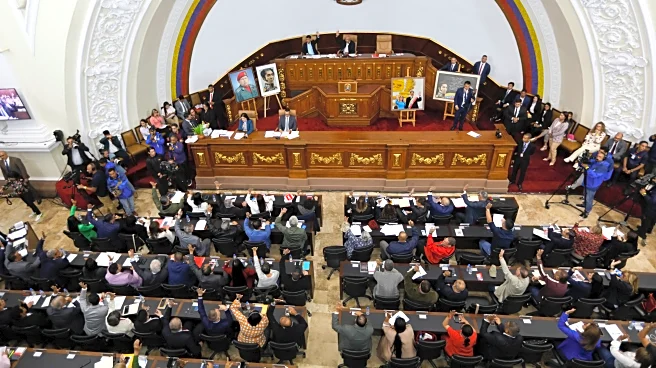What's Happening?
The Russia-Ukraine conflict has significantly impacted global financial markets, with increased volatility spillovers in commodity, stock, and foreign exchange markets. The commodity market experienced
the most substantial increase in risk due to changes in production levels and exports from Russia and Ukraine. The stock and foreign exchange markets also saw heightened risk, reflecting their vulnerability to geopolitical tensions. The conflict has led to deeper changes in major global financial markets, influencing risk transmission and connectedness among different financial assets.
Why It's Important?
The conflict has highlighted the interconnectedness of global financial markets and the impact of geopolitical events on market stability. The increased volatility in commodity markets underscores the importance of Russia and Ukraine as global commodity exporters. The changes in risk transmission among financial markets necessitate comprehensive risk management strategies to maintain financial security and respond effectively to global systemic financial risks.
What's Next?
As the conflict continues, financial markets will need to adapt to the evolving geopolitical landscape and manage the ongoing volatility. The resolution of the conflict will be crucial in determining the long-term impact on global financial stability. International cooperation and strategic adjustments will be necessary to address the broader implications and ensure market resilience.
Beyond the Headlines
The conflict has underscored the need for diversification in global commodity markets and the importance of reducing reliance on specific exporters. The changes in financial market dynamics may lead to long-term shifts in investment patterns and strategic approaches to risk management. The interconnectedness of global markets means that the impacts of the conflict are felt far beyond the immediate region, necessitating coordinated international responses.













